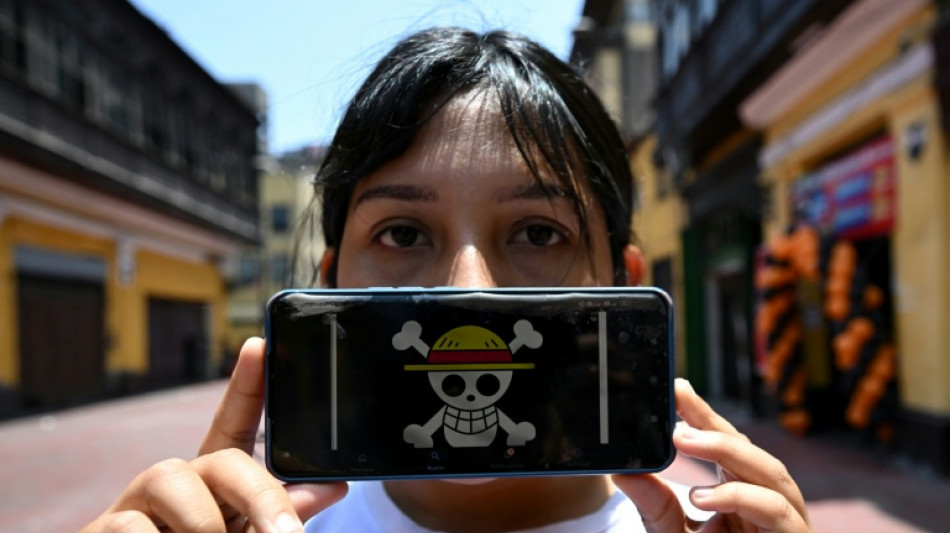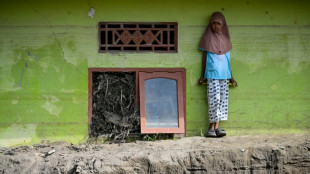

Peru's Gen Z lead movement against crime, political paralysis
Peru's Generation Z is leading protests against rampant crime and years of political deadlock -- demanding systemic change after watching seven presidents come and go in a decade.
Peruvian politics is not for the faint of heart.
The country has suffered years of near-constant political crisis, corruption scandals, rising prices and deadly protests.
Presidents have been impeached, charged, and forced from office. There is even a specially built jail that still houses three of them.
But now a new generation of Peruvians, born since Alberto Fujimori's dictatorship ended in 2000, are now leading the calls for change.
In recent days, thousands of young people have filled Lima's streets.
They organize through social media and -- like youth from Indonesia, Nepal and Madagascar -- wave Japanese manga "One Piece" pirate flags while voicing their demands.
In Lima, their anger erupted on October 15, when clashes with police left one person dead and about 100 injured.
"This is about fighting for a future," Angelo Nael Genti told AFP.
The 19-year-old student was beaten and hospitalized after being hit by a pellet during the crackdown.
Most demonstrators are under 28 and many from poor neighborhoods.
They say they feel unprotected by a state they accuse of failing to curb crime or deliver stability.
Genti joined classmates from a public university for what he called a peaceful march.
"They threatened me. They told me if they hadn't arrested me, they would have killed me right there," he said, showing bruises on his arm and head injuries.
He recalls first feeling the impact of a pellet on his left leg before falling to the ground. "About seven police officers beat and kicked me," he said.
Videos of police aggression went viral on social media, amplifying outrage.
Despite fear, Genti vows to keep protesting: "We want to preserve this idea of struggle for the next generations."
His mother calls him a hero for fighting for Peruvians' rights.
Genti hopes to finish his cultural heritage studies and possibly pursue filmmaking.
- 'Keep fighting' -
The protests have no single leader but share common demands: an end to corruption, better security and jobs in a country where informal work is widespread.
A constant struggle for power between lawmakers and Peru's parade of presidents has made crisis the rule, and made reforms all but impossible.
Rosalinda, a 26-year-old law graduate, says she marches to "expel criminals from power."
From a poor Lima district, she has worked and studied to survive.
"Generation Z is more of a cliche," she said. "I consider myself part of the working people."
She accompanied young detainees after police arrested about 20 protesters that day.
All were later released for lack of legal grounds.
AFP heard shouts from inside the detention center before their release: "Let me out."
Despite fear, Rosalinda says she will keep marching: "If I don't come back, keep fighting," she tells her family.
Wildalr Lozano, 20, a cricket player on Peru's national team, says he joined because he feels "unprotected" and disconnected from the government.
The movement, he adds, is about more than politics: "I've been robbed twice, and I live in a supposedly safe district."
For many, the 'One Piece' flag symbolizes unity against corrupt regimes.
The manga series, which has sold hundreds of millions of copies globally, pits a band of pirates against an authoritarian global government.
F.Thill--RTC



